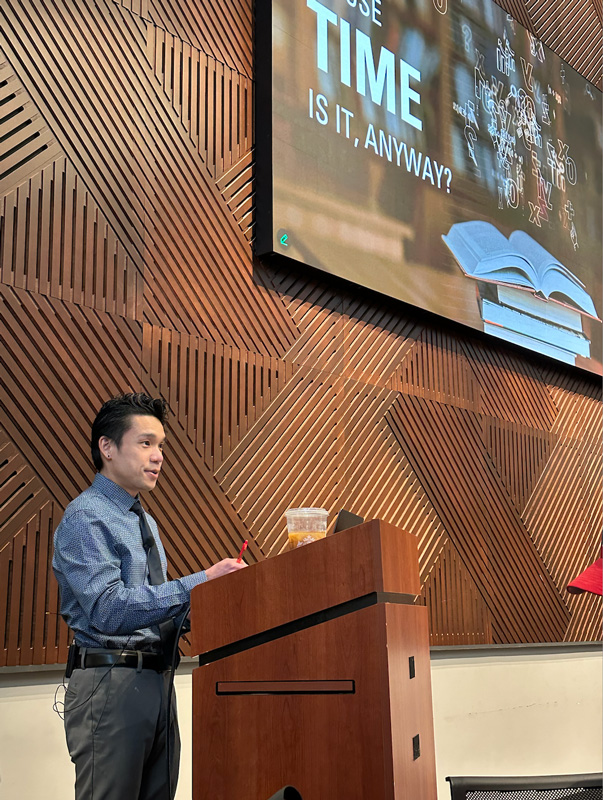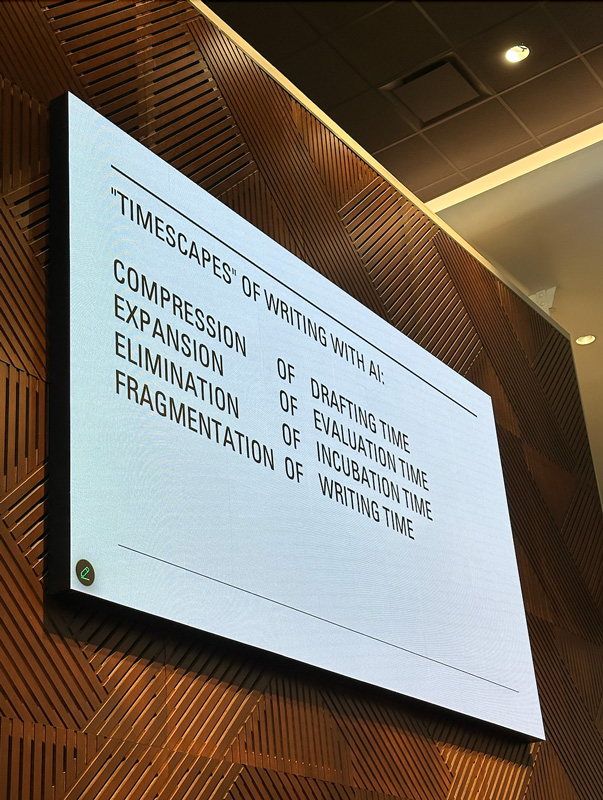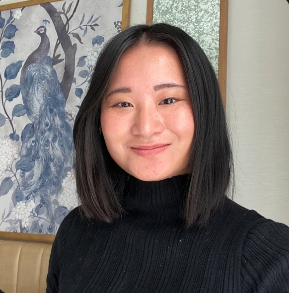Speaker: Jason Tham, Texas Tech University
This year’s keynote address was given by Jason Tham, Assistant Chair and Associate Professor of Technical Communication and Rhetoric and Texas Tech University. Tham’s talk was titled, “Whose Time is It, Anyway?” and explored who truly benefits from AI usage when it is used to save time. Attendees left this talk with a nuanced overview of the ways in which time is impacted by the creation, maintenance, and usage of AI as well as ways to incorporate deliberate slowness into their writing practices. Tham explored the pedagogical, temporal, and physical aspects of labor and agency that often go unseen when writers navigate Generative AI (GenAI) usage in the classroom and beyond.

The first section of the keynote address was focused on Complexity and AI, specifically asking “are we making AI a crisis?” and what new literacies arise when users try to save time using AI. Dr. Tham cited Sandra Jameison (2022), and framed this section on a return to pedagogy and why we teach writing. Raising this question, Tham pointed towards teaching practices such as developing critical AI literacy, focusing on rhetorical awareness and genre-blending, as well as “patch writing” (when writers add to and revise writing generated by GenAI). Tham proposed that labor of writing doesn’t disappear when users use AI to generate composition. Instead, it shifts and becomes labor in the assessment, revision, and decoding of new forms of writing.
“The Work Doesn’t Disappear, it Shifts”
The keynote then turned to the topic of labor, specifically the labor of AI trainers and others whose labor are often obscured by AI programs and unseen by a general user. Tham noted that the invisible labor of AI creates “power chronology” where some people’s time is valued more than others. Another example of this is the labor and time that instructors must take to decipher students’ AI usage as well as the time it takes to develop and teach literacies and skills to students. This shifts the timescapes of writing and how writing labor is valued.

As more writing shifts towards generative assemblages, writers become more so curators of content versus simply creators. Writing—whether that be handwritten or typed, requires various forms of embodied and mental labor, Tham asserts. We produce and situate knowledge in our bodies and also produce writing as a social process. Tham raised the question, “are we devaluing our own labor by trying to save time?”, which posed a generative focus for the rest of the keynote. The conversation then shifted to equity and teaching AI usage in the writing classroom. Tham noted that there are concerns with the language models that AI uses, especially for students who are translingual or use other dialect of English. Connecting this ethical concern back to agency, Tham noted that most students use GenAI when they feel rushed or when they have less agency over a deadline. Using GenAI can restrict more of the agency that student writers have when they are unable to take the time to develop their own writing skillset and meta-awareness.
This keynote pointed towards some generative solutions to the question of “Whose Time is It, Anyway?”, primarily focusing on the deliberative productive struggle of producing writing. As Tham pointed out, “slow writing” and “thoughtful creation” may be some frameworks to approach the writing process. By embracing collaboration, revision, and reflection within each step of the writing process, writers are asked to slow down and be deliberative about their approach. Ultimately, Tham asserts that that the process of slowing down and taking the time to have productive struggle is what ultimately helps each of us reclaim our time. A couple of suggestions for slow writing are to ask yourself where you feel pressure to use AI and to practice mindful writing habits such as reflective memos.
This keynote confronted the tensions of agency and time—and how those are shaped and produced by our interactions with GenAI. Tham’s focus on slow writing and thoughtful creation reinforces the emphasis on deliberative practices. It also points towards opportunities to examine AI literacies that are taught in writing classrooms and invite further discussion about when we feel restricted or empowered with agency over our intellectual development. All in all, this keynote reiterated that “learning time isn’t wasted time” and that time for writers continues to be shaped by AI in deliberative ways.

